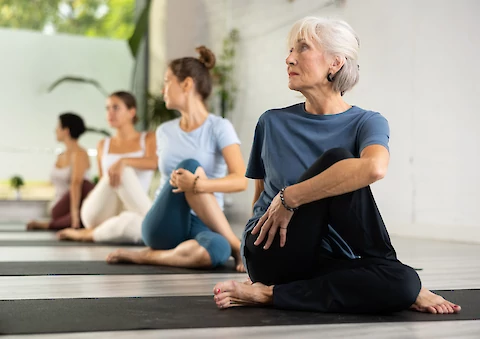
Osteoporosis is a common condition that affects millions of seniors worldwide, causing bones to become weak and brittle. With the increased risk of fractures and a potential decrease in quality of life, older adults and their caregivers must understand this condition and how to manage it effectively. By empowering seniors with this knowledge, they can take positive, actionable steps towards maintaining healthy bones and a vibrant, fulfilling lifestyle.
Risk Factors for Osteoporosis
Age is a primary risk factor, as the natural process of bone loss accelerates as we grow older. Gender also plays a role, with women being more likely to develop osteoporosis than men, particularly after menopause. Family history, ethnicity, and body frame size are other factors that can influence the likelihood of developing osteoporosis. Individuals of Asian and Caucasian descent and those with smaller body frames are at a higher risk.
Improving Bone Health in Seniors
Diet is a crucial factor in bone health, with Calcium and Vitamin D playing vital roles in maintaining bone density. Seniors should aim for a daily intake of 1200 mg of Calcium and 800-1000 IU of Vitamin D through a combination of food sources and supplements if necessary.
Physical activity is another critical component of strong bones. Regular weight-bearing exercises such as walking, jogging, or dancing can help promote bone strength. Additionally, balance and flexibility exercises like yoga and tai chi can reduce the risk of falls and fractures in seniors.
Tobacco and alcohol use can also hurt seniors' bone health. Quitting smoking and limiting alcohol intake to one drink per day for women and two for men can positively affect bone density.
Certain medications can also affect bone health, so seniors will want to discuss any concerns with their healthcare provider. They can tell seniors about possible alternatives or ways to minimize the impact on their bones.
How to Prevent Osteoporosis
Preventive measures can go a long way in maintaining bone health as seniors age. Ensuring that their diet is rich in Calcium and Vitamin D is crucial. Seniors should consume foods such as dairy products, leafy greens, and fatty fish. If meeting the recommended daily intake through diet alone is challenging, seniors can consider taking supplements under the guidance of a healthcare provider.
Incorporating regular exercise into their daily routines is also essential in preventing osteoporosis in seniors. Weight-bearing exercises, balance, and flexibility activities can promote strong bones while reducing the risk of falls and fractures. Seniors should aim for at least 30 minutes of physical activity most days of the week.
In some cases, seniors may need medications to treat or prevent osteoporosis. Discussing specific needs and concerns with a healthcare provider can help determine if this is the right course of action and which medications may be most appropriate.
Lastly, regular check-ups with healthcare providers are vital in monitoring and maintaining bone health. Bone density tests can help identify any changes in bone mass, enabling early intervention if needed.
Need Help Maintaining Bone Health?
Understanding osteoporosis risk factors and taking preventive measures can empower seniors to maintain strong, healthy bones throughout their golden years.
For seniors living in Napa, Sonoma, American Canyon, St. Helena, and Fairfield, Senior Helpers Napa is here to support and assist in maintaining bone health and overall well-being. We can help seniors with daily exercise, transport to fitness classes, or preparing healthy meals that support bone health.
Contact us today to learn more about our services and how we can help seniors live a healthier, more independent life.